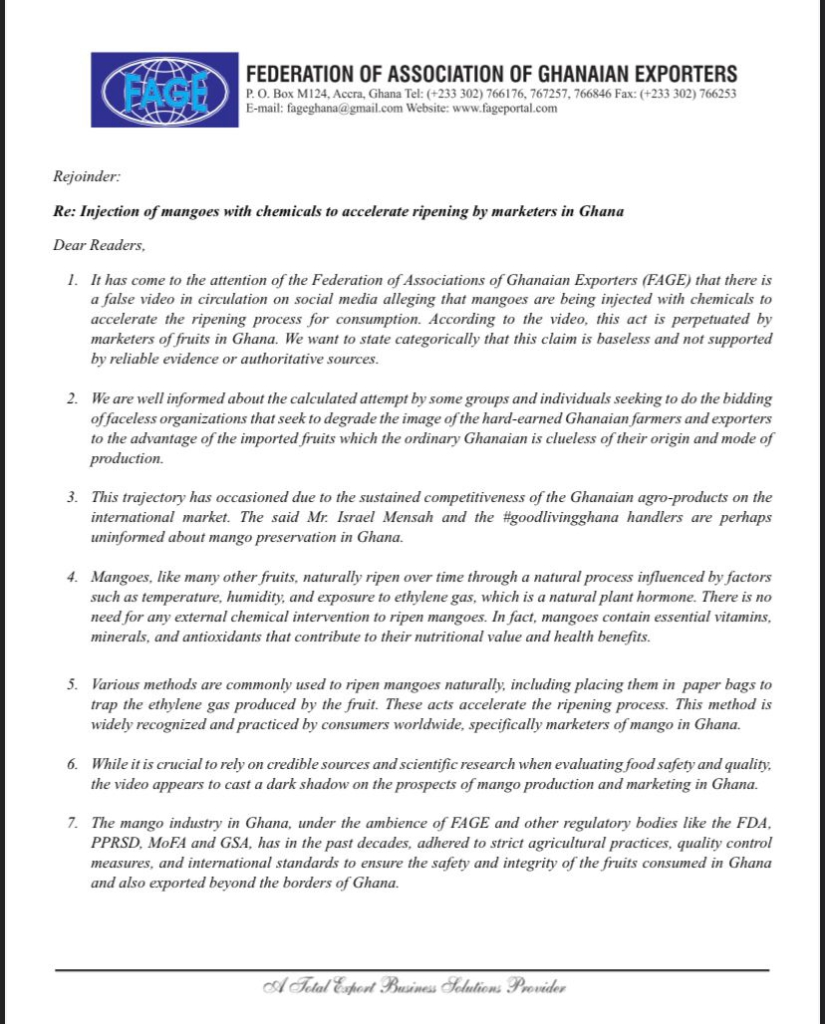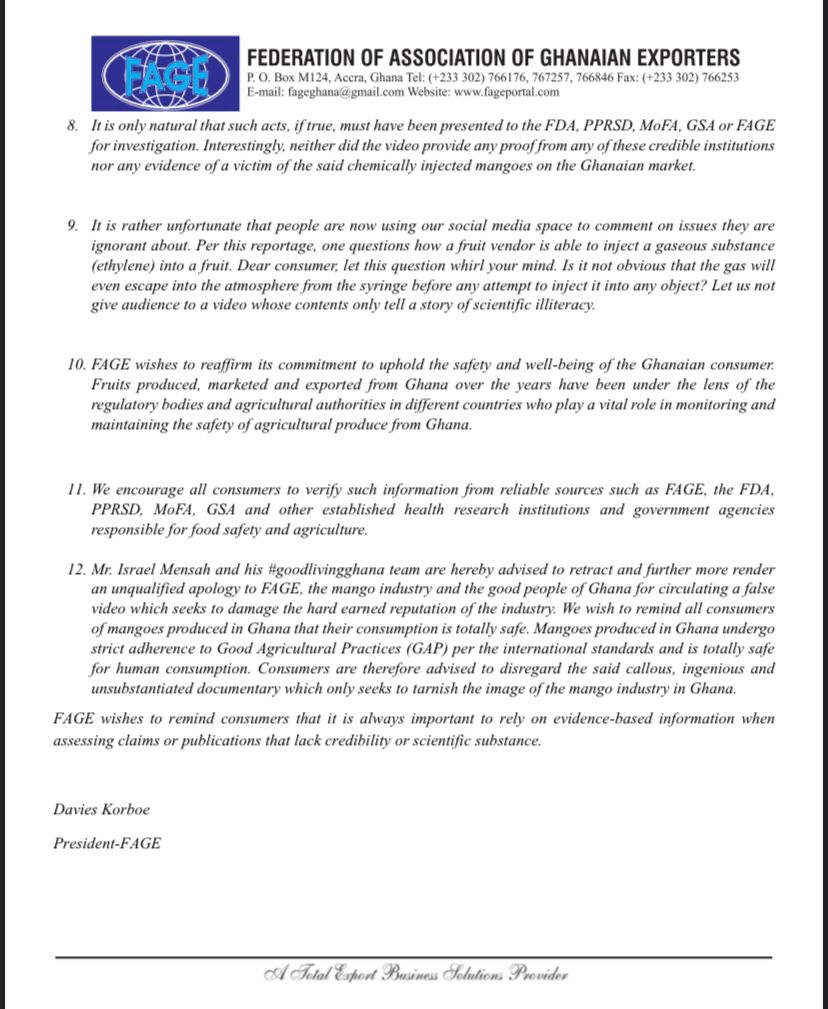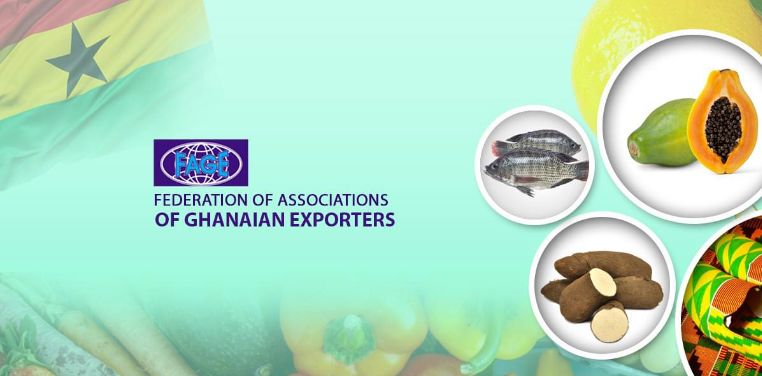The Federation of Associations of Ghanaian Exporters (FAGE), has debunked claims made in a viral social media video that mangoes are being chemically injected to hasten the ripening process.
According to FAGE, mangoes in Ghana adhere strictly to Good Agricultural Practices (GAP) per international standards, and are thus safe for human consumption as they ripen through a natural process influenced by factors such as temperature, humidity, and exposure to ethylene gas.
In a press statement signed by its president, Davies Korboe, the federation described the said video as deceptive, and called on its creators to retract and apologize for the harm caused.
For information regarding the quality of food, FAGE urged the public to rely on organisations such as the Ghana Standards Authority (GSA), the Ministry of Food and Agriculture (MoFA), the Food and Drugs Authority (FDA), and Plant Protection & Regulatory Services (PPRSD).
The Federation in a statement said, "We are well informed about the calculated attempt by some groups and individuals seeking to do the bidding of faceless organizations seeking to taint the image of the hard-earned Ghanaian farmers, marketers and exporters to the advantage of the imported fruits which the ordinary Ghanaian is clueless of their origin and mode of production."
"This trajectory has occasioned due to the sustained competitiveness of the Ghanaian agro-products on the international market. The said Mr. Israel Mensah and the #goodlivingghana handlers are perhaps uninformed about mango preservation in Ghana.
Mangoes, like many other fruits, naturally ripen over time through a natural process influenced by factors such as temperature, humidity, and exposure to ethylene gas, which is a natural plant hormone. There is no need for any external chemical intervention to ripen mangoes. In fact, mangoes contain essential vitamins, minerals, and antioxidants that contribute to their nutritional value and health benefits.
It said the mango industry in Ghana, "under the ambience of FAGE and other regulatory bodies like the FDA, PPRSD, MoFA and GSA, has in the past decades, adhered to strict agricultural practices, quality control measures, and international standards to ensure the safety and integrity of the fruits consumed in Ghana and also exported beyond the borders of Ghana.
Read the full statement below:


Latest Stories
-
Ghana and India to expand cooperation in trade, agriculture, energy – Mahama
2 hours -
Your visit reaffirms our collective commitment to global peace, prosperity – Mahama tells Narendra Modi
2 hours -
Israel: A divine and historical claim rooted in scripture and truth
2 hours -
Norway fight back to beat Euro 2025 host Switzerland
2 hours -
Anabel Rose unveiled as Fresh Finds Spotify cover for June
2 hours -
Stalled Winneba-Kasoa highway sparks concerns over unpaid contractor arrears
2 hours -
Sean ‘Diddy’ Combs loses bid for release on bail ahead of sentencing
3 hours -
Court discharges lecturer, 2 students over room, bed allocation scandal
3 hours -
Friday Club urges NPP presidential hopefuls to prioritise unity and issue-based campaigning
3 hours -
Court grants bail to TikToker over viral political claims
3 hours -
Youth urges State of Emergency declaration on galamsey at PNAfrica National Youth Mock Parliament
3 hours -
Burning of waste bins and indiscriminate dumping threaten sanitation management efforts – Zoomlion
3 hours -
NPP brutally injured, recovery will take time – Addai-Nimoh
3 hours -
Rastafarian student Oheneba Nkrabea graduates from GIS after Achimota saga
3 hours -
Gov’t heighten monitoring along Black Volta after drowning of Lawra SHS students
4 hours

